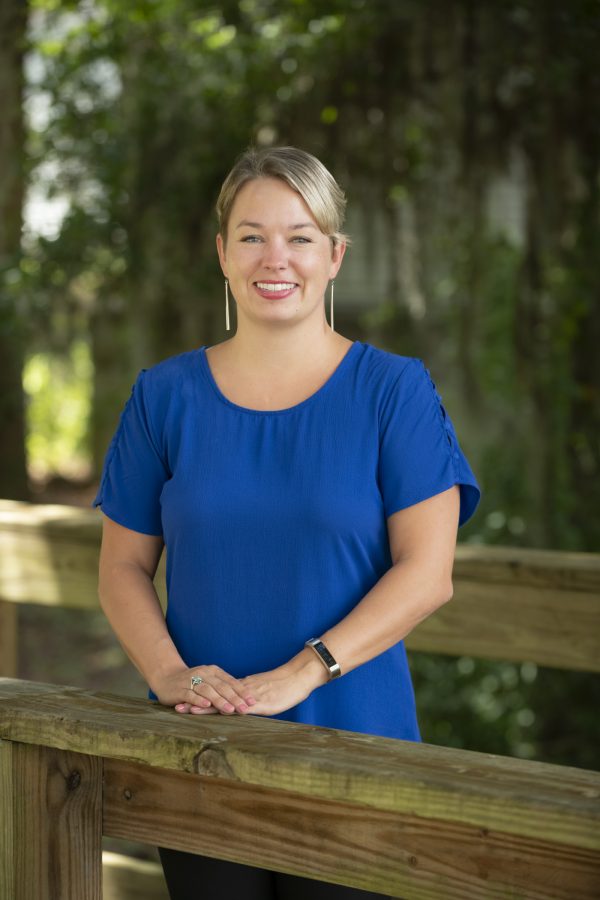As a child, Megan Ennes dreamed of becoming a geologist – that is, until she discovered zoology. Zoology, in turn, was eclipsed by marine biology. What never wavered, though, was her family’s encouragement of her interest in science.
Now, Ennes works with children and their families to ensure they’re able to cultivate their curiosity in a similarly supportive environment.
In August, she joined the Florida Museum’s department of natural history as assistant curator of the newly created division of museum education. As part of her research, she will work with faculty and educators on how to use museum resources to develop and assess programs that help increase the public’s understanding of science.
“If I could have written my own job description, it would have been this position,” she said. “I’m very excited to be doing research in a museum, and I feel fortunate that the University of Florida saw the need for this position. There are few like it in the country. I look forward to helping UF become the preeminent institution for museum education.”

Florida Museum photo by Kristen Grace
After a decade of working as an educator in aquariums, Ennes completed a Ph.D. at North Carolina State University in science education, with a focus on how people learn outside of the classroom.
“Research shows that 95% of our time is spent outside of school, so much of our learning takes place in informal settings like museums,” she said. With about 850 million visits to American museums each year, “it’s a wonderful opportunity to reach a lot of people, especially if we have highly qualified educators.”
In addition to researching museum education, Ennes is eager to incorporate her extensive experience in helping underrepresented youth create and sustain an interest in science careers. Her doctoral research showed that the chances of children getting hooked on science increased when their parents were also engaged in the learning process.
“Rather than just working with kids as individuals, we worked with whole families,” she said. “The programs were so wonderful in that not only did the kids change how they felt about science, the parents significantly changed how they felt about science, which then created better resources for supporting their children.”
Ennes said she has seen a transformation in how museums approach accessibility and diversity, from producing exhibits in multiple languages to hosting sensory inclusive events, expanding free or low-cost exhibits and becoming more mindful of how various visitors may or may not feel welcome in museum spaces.
“There’s been a major shift in how museums think about who they need to reach and how to best do that,” she said. “That’s something we’re all still working on. The challenges are varied, and so the solutions will need to be multi-pronged as well.”
Ennes will look at ways to broaden how the museum reaches the public, especially would-be visitors who may not have the opportunity to visit Powell Hall, where the museum’s exhibits reside.
“We’re working with rural schools and Title 1 schools (which have a high number of low-income students) to help them have better resources to engage their students,” she said. “We’ll also be looking at how we can bring families far from the museum to museum centers that may be closer to home, such as the fossil dig site at Thomas Farm and the Randell Research Center. Even if they can’t physically get here, they can still use our collections and learn about the work that’s happening here.”
Ennes is also affiliated with the Thompson Earth Systems Institute, collaborates with UF’s museum studies program and will be teaching a course in the UF honors program in the spring. She mentors undergraduate and graduate students and is recruiting graduate students for the division of museum education.
She is a member of the National Network for Ocean and Climate Change Interpretation and serves on its scientific partnership committee. She completed her undergraduate degree in marine biology and her master’s degree in environmental studies at the University of North Carolina at Wilmington.
Source: Megan Ennes, mennes@floridamuseum.ufl.edu, 352-273-2006